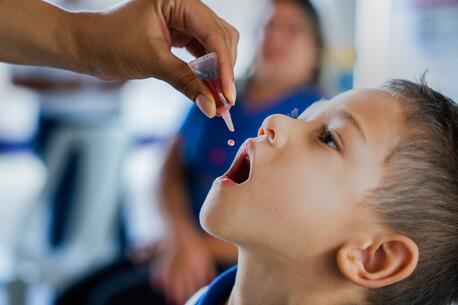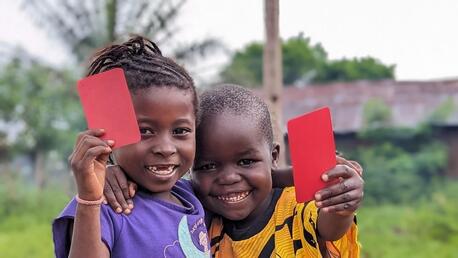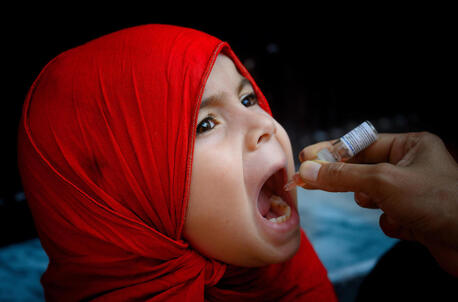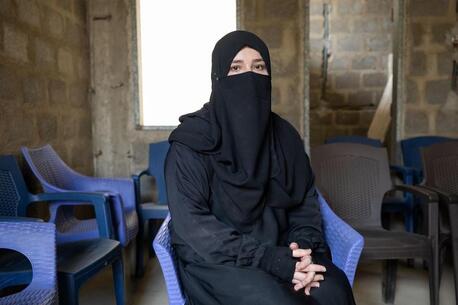
Rotary International and UNICEF: Partnering to End Polio

Rotary International has been a leader in the fight to eradicate polio
Rotary is a worldwide organization of more than 1.4 million business, professional and community leaders. Members of Rotary clubs, known as Rotarians, provide humanitarian service, encourage high ethical standards in all vocations, and help build goodwill and peace in the world.
Rotary helps fund critical elements of UNICEF’s polio eradication programs, such as national immunization days, polio vaccine delivery and health worker training. Rotary’s global reach is on par with UNICEF’s own. This international organization empowers frontline workers in polio-endemic regions; members have contributed countless volunteer hours to ensure that even the hardest-to-reach children are immunized.
Rotary’s steadfast generosity also boosts UNICEF’s vaccine procurement and distribution operations and complements Community Health Workers' (CHW) training and outreach efforts. These community mobilizers dispel misinformation and gain the trust of parents and caregivers to vaccinate their children.
Since UNICEF and Rotary began their partnership in 1988, both organizations, as members of the Global Polio Eradication Initiative (GPEI), have played a fundamental role in dramatically decreasing the number of polio-endemic countries. Rotary’s advocacy, fundraising and community mobilization of members in 200 countries have made possible the immunization of 3 billion children, and cases have decreased globally by an astonishing 99.9 percent. Widespread vaccination has prevented an estimated 650,000 cases of paralysis every year and saved up to 60,000 children’s lives. Today, wild poliovirus is found in only two countries: Afghanistan and Pakistan.
Local Rotary clubs
There are 35,000 Rotary clubs in more than 200 countries and geographical areas. Clubs are nonpolitical, nonreligious and open to all cultures, races and creeds. As signified by the motto Service Above Self, Rotary’s main objective is service — in the community, in the workplace and throughout the world.
In nearly every country where there is a Rotary club, there is also a UNICEF presence, and Rotary’s seven areas of focus directly overlap with UNICEF’s priorities. Each partner brings unique experiences and resources to this complementary partnership, continually expanding our reach by building on the critical public health infrastructure which will continue to serve as the backbone for tackling pressing global health issues, including those related to water, sanitation and hygiene.
UNICEF is currently partnering with Rotary on WASH strategies under the Rotary WASH in Schools Target Challenge Framework in Belize, Guatemala, Honduras, India and Kenya. The program seeks to motivate Rotary clubs to develop comprehensive, sustainable WASH projects in schools to improve school attendance and education outcomes that align with UNICEF standards.
Learn more about how UNICEF and civil society groups work together to create better futures for children.


